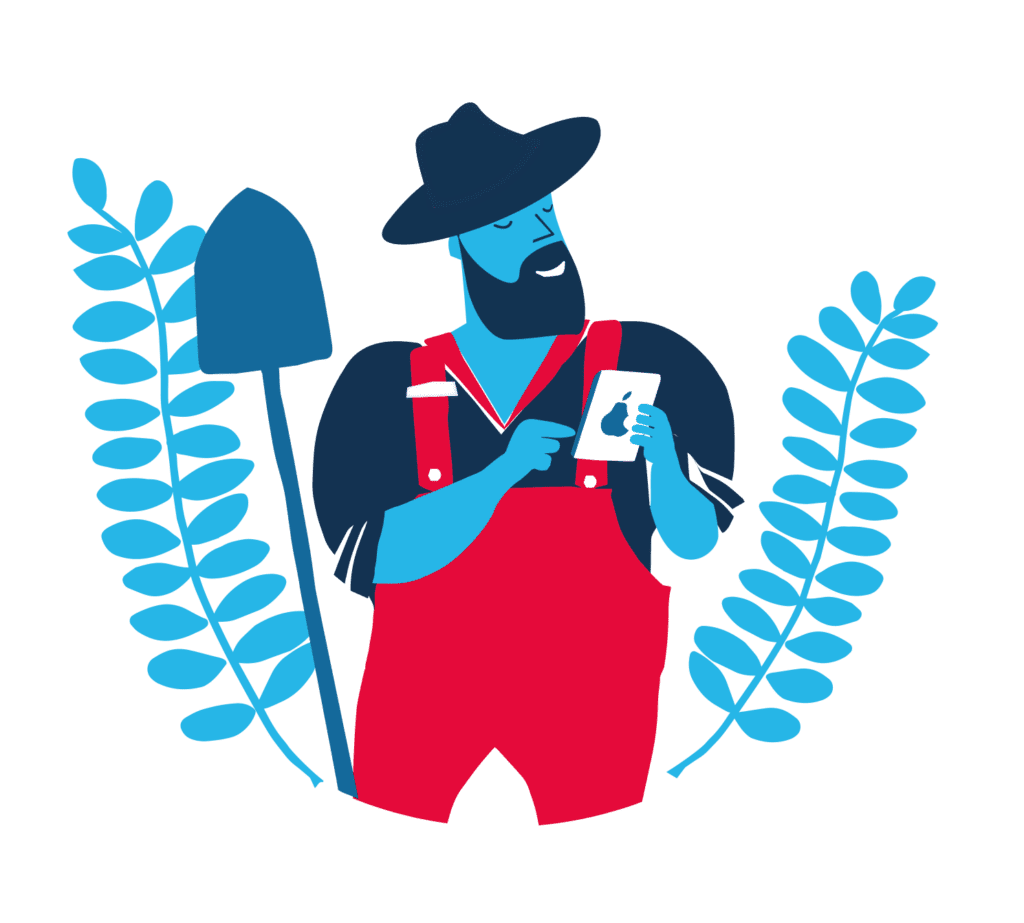May we introduce you to us, our dreams and our way of working?
Mission and Vision
OUR VISION
Wouldn’t it be wonderful, if everyone around the world got to enjoy truly good food? Good to us means that the value of that food is distributed along the supply chain evenly – that everyone gets their fair share, including farmers, fishermen, pickers and factory workers. Good also means that the food is produced responsibly, with respect for the planet, people and animals. Ultimately, we strive toward food chains that bring prosperity to all.
OUR MISSION
We offer innovative solutions that enable agri-food businesses to improve their responsible business practices. Open solutions that are designed to democratise the world of food. We actively engage all supply chain actors – from farmer to retailer and consumer – aiming to contribute to the socio-economic prosperity of farmers and food workers. Fairfood believes in establishing partnerships to jointly accelerate the change towards a sustainable food system.
Theory of Change
Our Theory of Change (ToC) is a more technical view of the road we walk towards reaching that mission. Central to our path is the assumption that both companies and farmers stand to benefit from improved awareness and knowledge sharing. That is why we develop solutions that improve transparency and create a connection between all stakeholders in food supply chains – the foundation for said knowledge sharing.
Our ToC follows two pathways; one that makes agri-food companies value transparent business practices, and one that makes sure that farmers directly benefit from improved transparency and traceability. Let us explain:
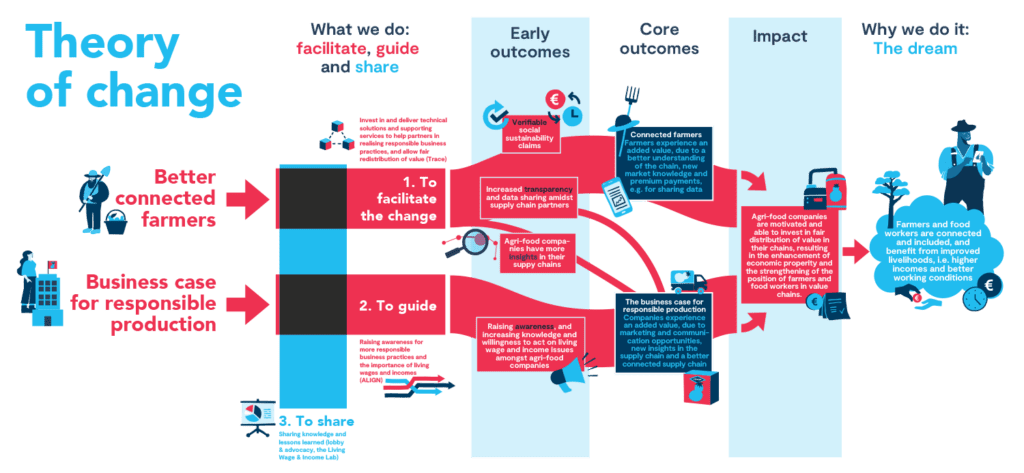
PATHWAY OF CHANGE: THE BUSINESS CASE FOR RESPONSIBLE PRODUCTION
Fairfood supports companies by sharing knowledge, raising awareness, and allowing for new insights on issues and risks in their supply chains. To achieve this, we help them trace their products back to farmers and food workers. Moreover, we believe that the digital era allows companies to openly share their sustainability journey – that is, be transparent about their business practices. We also believe this could cause consumers to value a product more.
Ultimately, companies should experience added value when using tools like our traceability solution Trace, and remain committed, motivated and able to invest in a transition towards fair distribution of value across their supply chains. What makes Fairfood unique is that we support these companies throughout the whole process, sharing innovative solutions, experts and services.
We are nudging partners to break with old habits in three ways:
- Raising awareness: Through storytelling, lobbying and advocacy, we put important topics on the agenda of businesses and governments. ALIGN, our guidance tool for living wages and incomes, takes this a step further, by handing companies a step-by-step guide to work towards living wages and incomes for the people in their supply chains
- Taking accountability: Trace, our transparency and traceability tool, allows companies to map their supply chains, trace transactions, interact with other stakeholders in their supply chains, and make substantiated socio-economic claims about their products. We encourage companies to share supply chain insights with transparency, inspiring more actors to get involved and work towards improving the livelihoods of farmers and workers, ultimately closing the living wage or income gap
- Be the change: Food sector stakeholders – food brands, retailers, knowledge institutes, governments and more – are invited to co-design solutions in our Living Wage & Income Lab, where they can brainstorm and experiment with innovative solutions to old known problems
Although no two corporate sustainability journeys are the same, In the past year, we standardised the partner journey, having formulated 4 overarching stages. Read more about this in chapter 2.
PATHWAY OF CHANGE: CONNECTED FARMERS
The second pathway sees Fairfood empowering farmers and workers by connecting them directly to other stakeholders in the supply chain. We make sure that their needs take centre stage in solution design, and create channels that allow for direct sharing of valuable market information. For farmers, the usage of our Trace tool is (or will be) geared towards their capacity to understand and use data, voice their needs, grow their negotiation power and interact with other supply chain actors.
Bottom line: Fairfood uses technology as a catalyst for good while working towards the same vision we’ve had since day 1: a world in which we all get to enjoy truly good food.
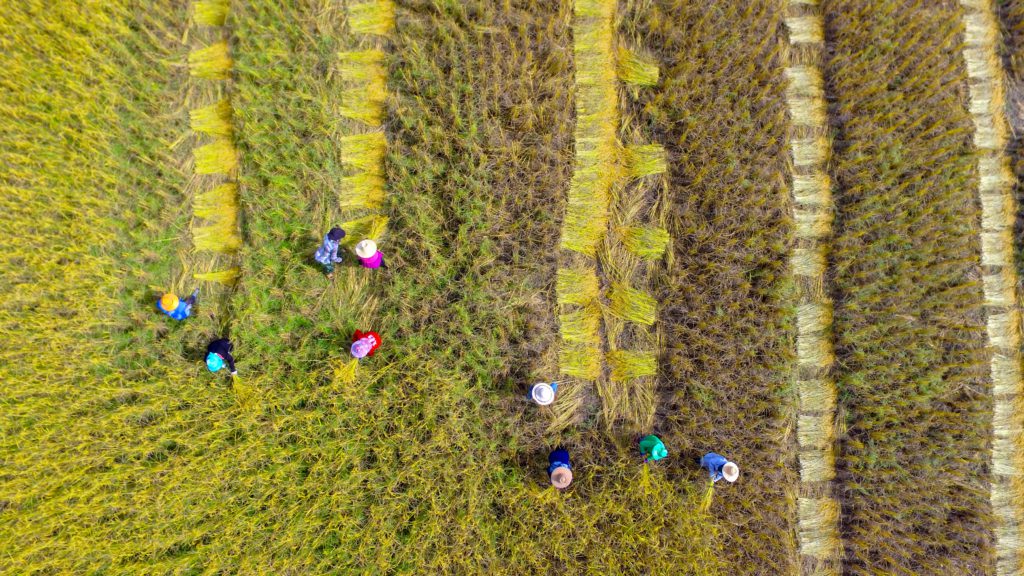
Fairfood looks at the Sustainable Development Goals to measure our contributions to achieving sustainability in an inclusive way, addressing inequality, and social and environmental injustices. Our indicators are aligned with SDG’s 1 (no poverty), 2 (zero hunger), 3 (good health and well-being), 8 (decent work and economic growth), 10 (reduced inequalities) and 12 (responsible consumption and production).
This is us:
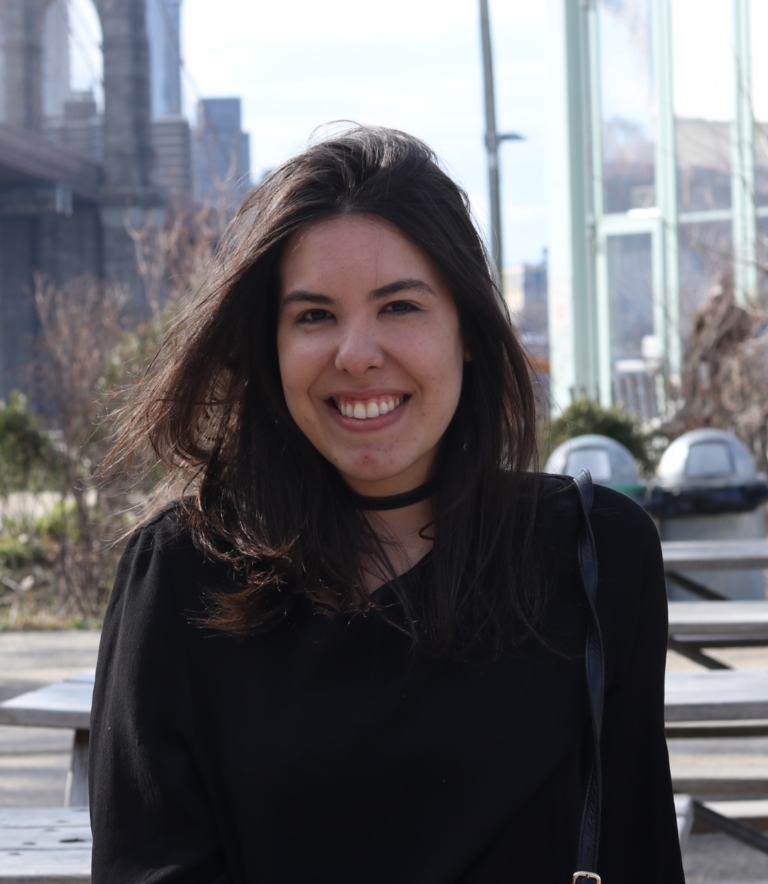
Meet our star Mariana: she takes our communication activities to the next level, as she conducts research on the living wage and income while making the subject understandable to all..
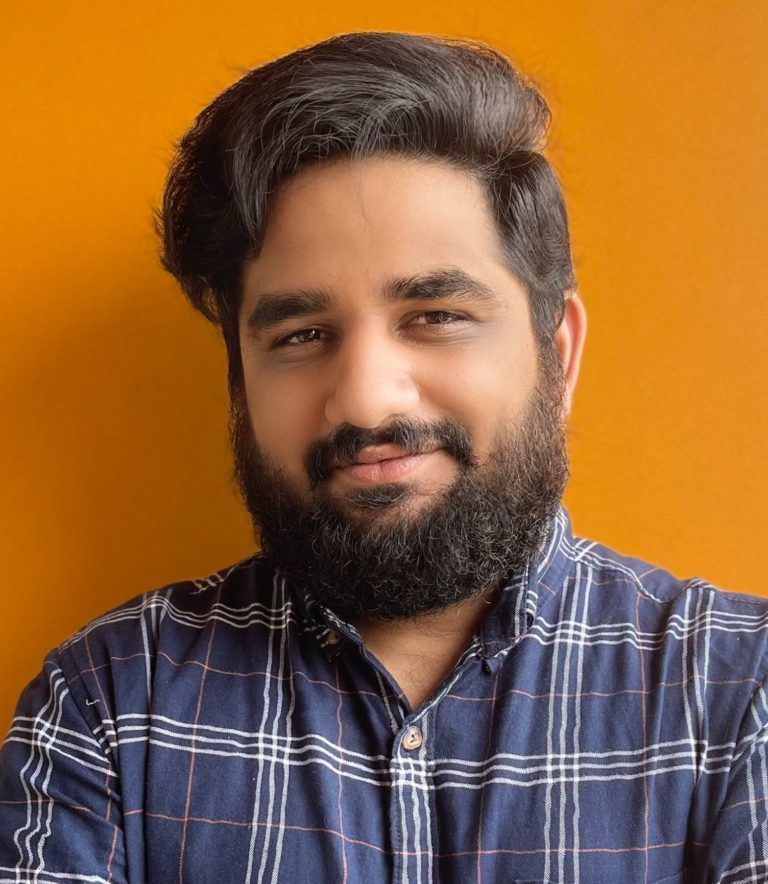

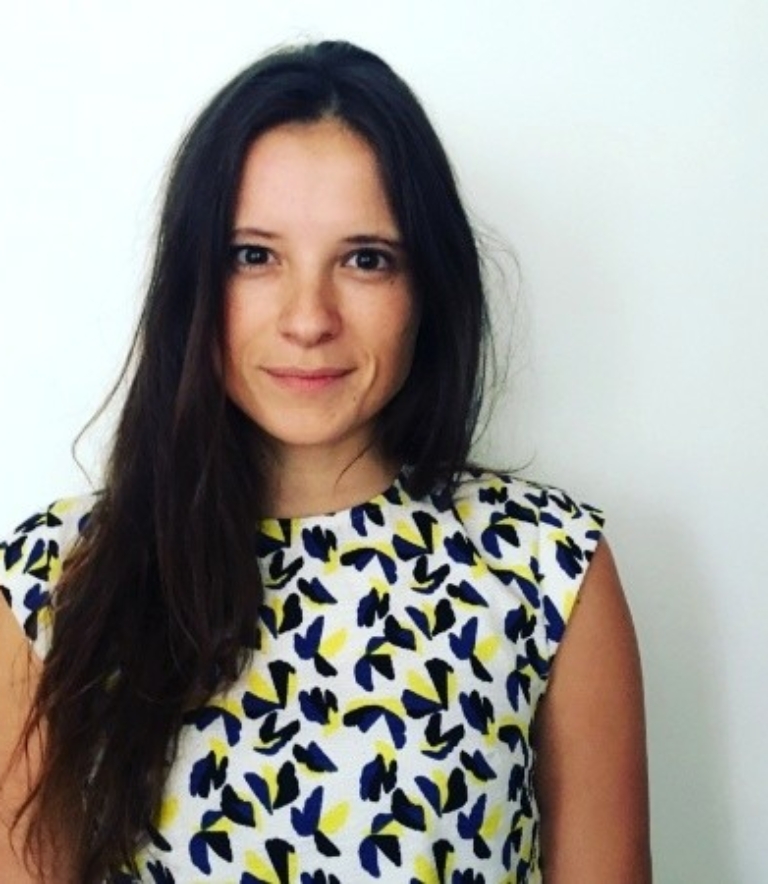
Give Josje a call if you have a super complex project that needs managing, or if you need a speed course data governance.
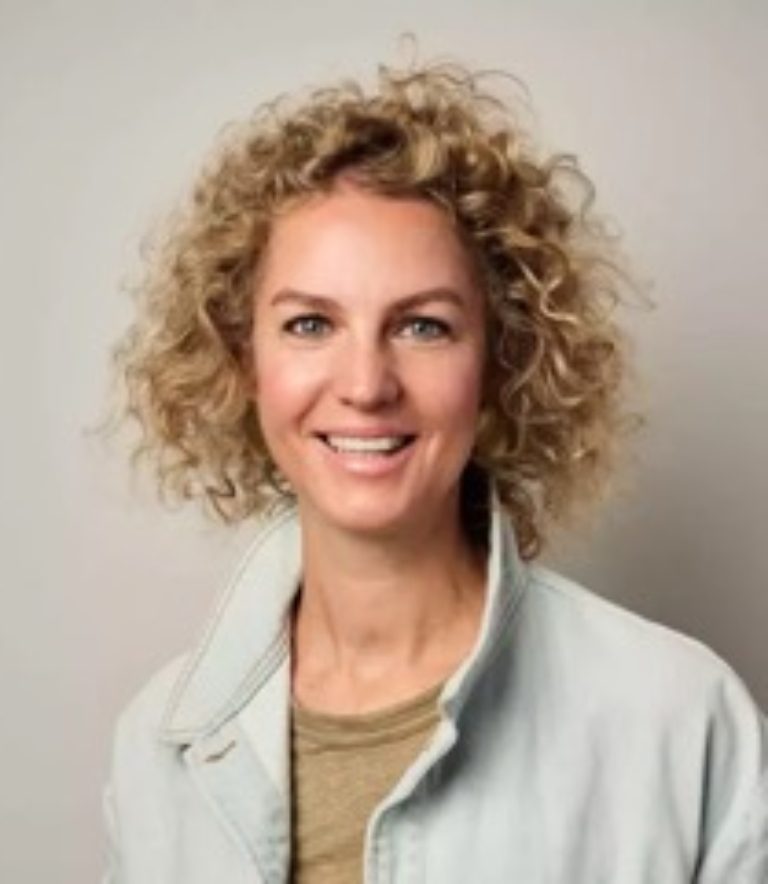

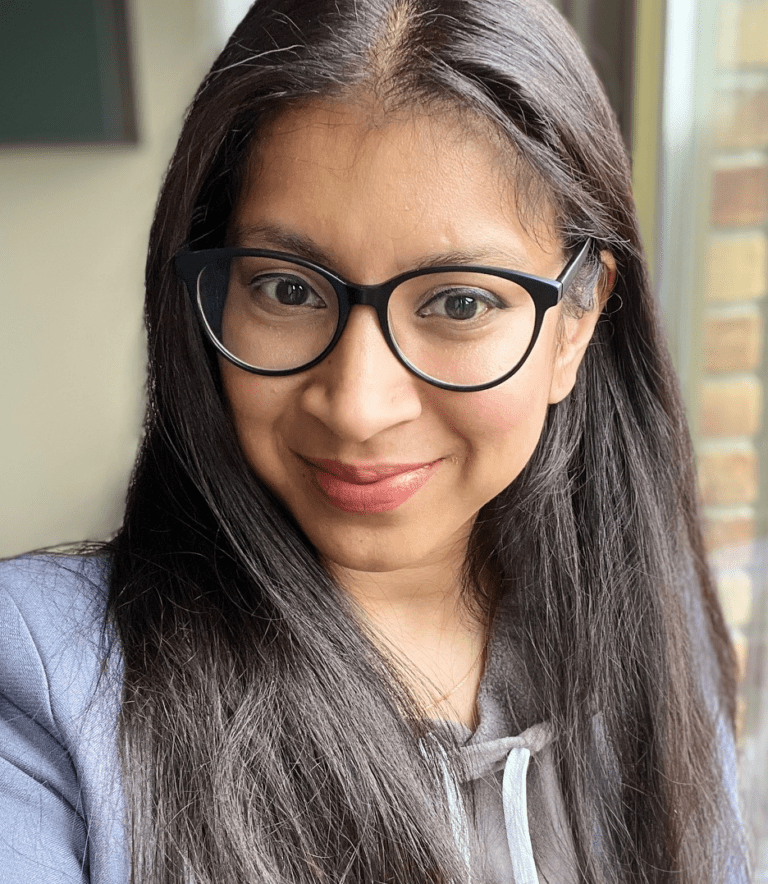
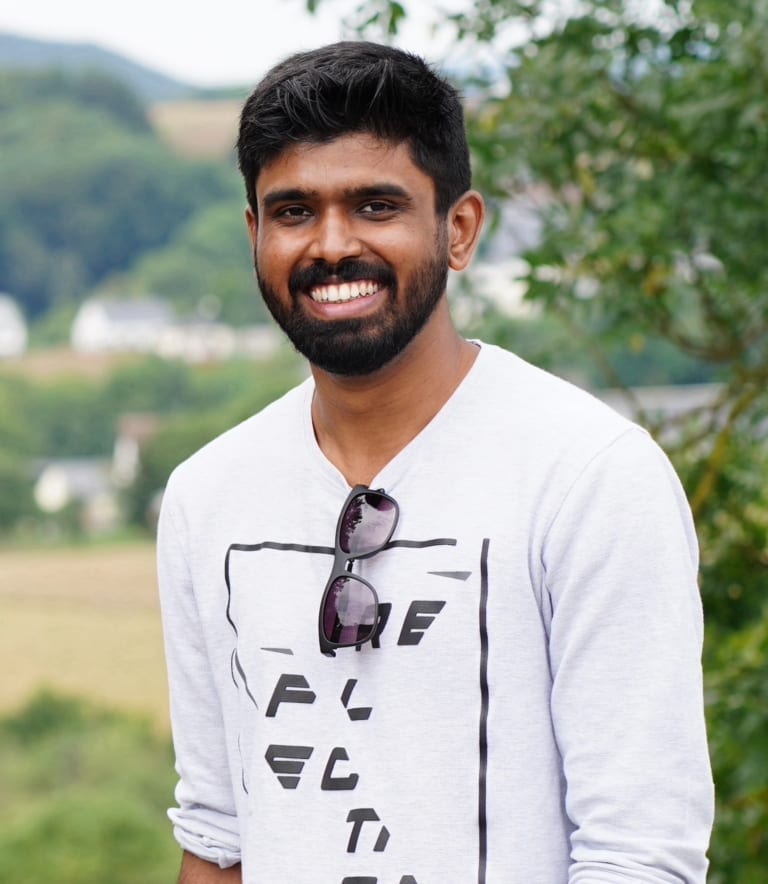
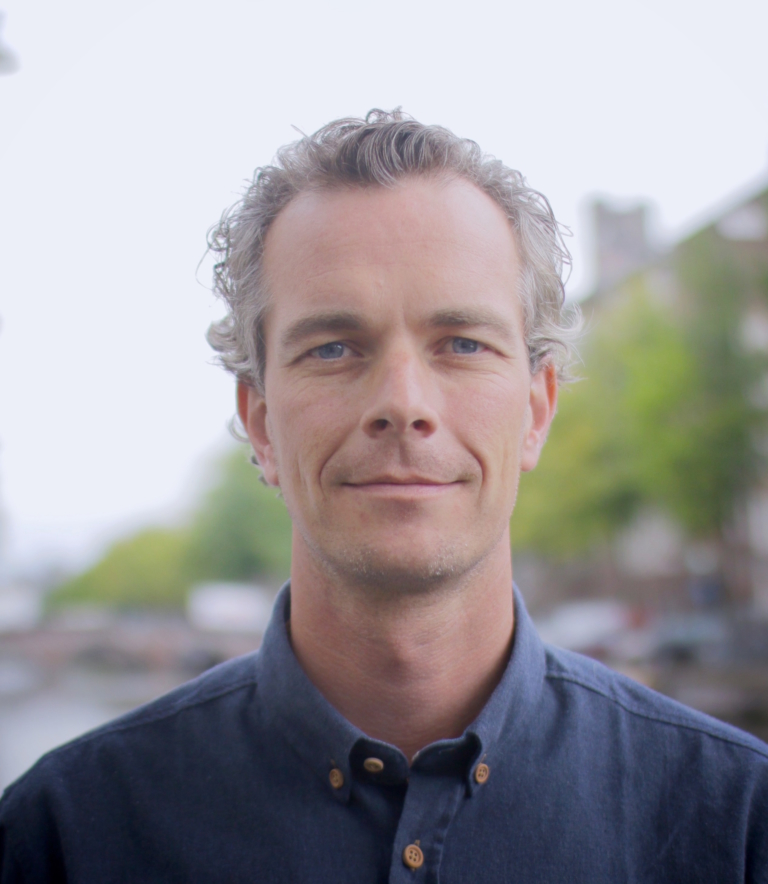
The visionary, the inspirer, the director.
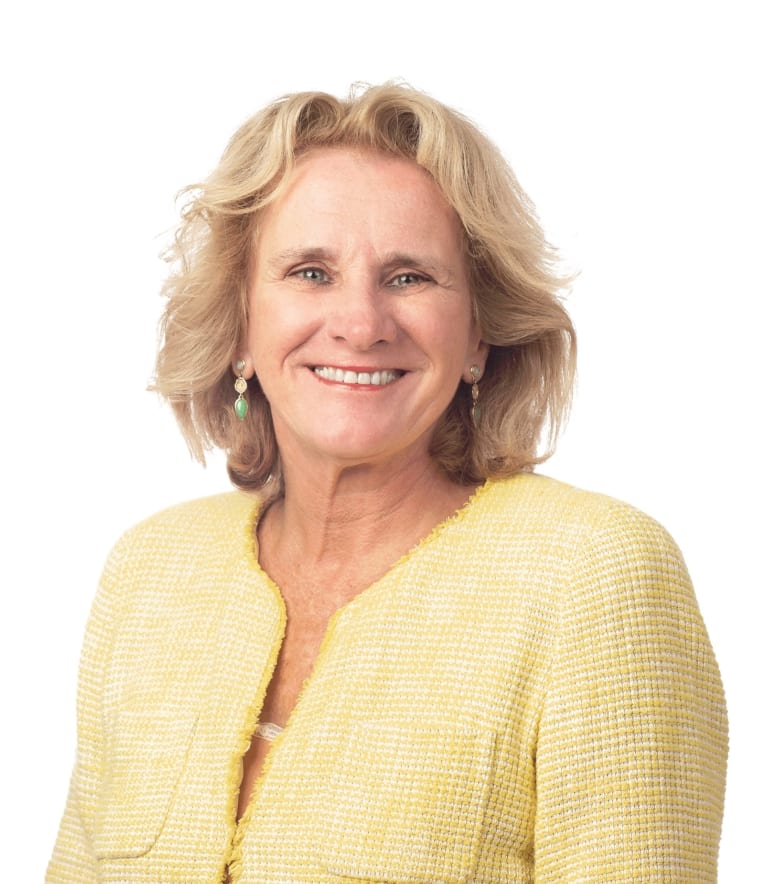
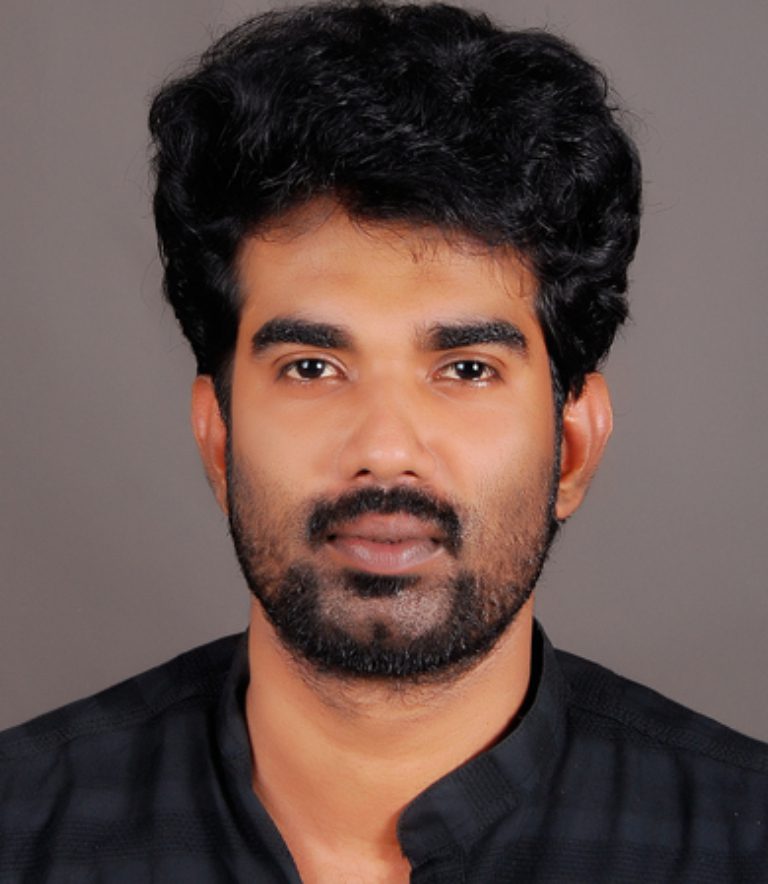

We are particularly proud of our transparency tool Trace, and with it of the product owner Derek.
We want to give a massive thank you to the very bright interns Luiza Toledo, Rika Mochizuki, and Matilde Ferretti, who helped lift the marketing and communication efforts to another level in 2022! Also, we look back on another extremely fruitful year of our collaboration with CIED, who make our wildest tech dreams come true. Thanks Aswini Harinath, Akash Mathew, Anto Varghese, Sankaran Namboodiri, Sreenath T M, Gogul Chalil Vengara, Adarsh V, Tanneru Sai Ganesh, Jayesh J and Gopika M!
The Fairfood boards
Fairfood is governed according to the Supervisory Board Model. Our team and work are managed by the managing director – our very own Sander – who was assigned by the Supervisory Board. This Board consists of at least five people, who do this work unsalaried. When a position opens up on the Board – as happened in 2022, more about that later – new members are appointed by sitting members.
The Supervisory Board monitors our management, and keeps an eye on the general course of affairs at Fairfood. The Board’s tasks include the approval of the annual plan and budget, and assessment of the annual report and financial statements. Also, on a yearly basis, two members of the Supervisory Board, including the chair, sit down with the managing director for an assessment interview. Our audit committee consists of two members of the Supervisory Board. This commission supports Fairfood with financial matters, and meets at least twice a year with the manager to discuss, among other things, the preliminary budget.
In 2022, we waved our dearest Board members Jolande Sap and Maxine Tillij goodbye. After years of loyal service, having made a huge contribution to and impact on our work, it was time for them to move on. We warmly welcome Mariëtte Swart and Han de Groot, who filled their seats. Together with Hedwig Bruggeman, Pieter Goudswaard and Wiard Gorter, they now form our Supervisory Board.
Besides this Supervisory Board, a brand-new advisory board helps us navigate today’s digital reality, in which tech and data are our force for good. We like to call this new Board our Solution Advisory Board. Chaired by Jacob Boersma, digital identity and blockchain expert, the Board is made up of experts with extensive track records in traceability, digital payments, open-source technologies and blockchains.
Integrity
Fairfood actively works on safeguarding and improving the integrity and equality within our organisation. We aim for a healthy and positive team spirit, a safe work environment in which people feel heard, and good working conditions that allow everyone to do their job with confidence.
As a member of Partos, the trade association for development cooperation, we comply with their Code of Conduct. Moreover, we abide by the ‘zero-tolerance for non-acting’ principle, which reflects in our own Code of Conduct on Integrity, that we composed in recent years. Our integrity officer, Channa Brunt is the Code’s ambassador. In the past years, she’s appointed internal and external confidants, and drafted an agreement with consulting agency GIMD, that serves as an independent confidant and guider in case an integrity issue arises.
Although no integrity issues have been reported as yet, we continuously ask ourselves questions like: are we doing justice to the people and organisations we work with? But also, when it comes to our own organisation: when is something unjust? And what do we do when we encounter such injustices, say abuse of power, financial violations, or discrimination? Of course, it all starts with prevention, but in the case of inappropriate behaviour, we report, carefully examine, sanction if needed, and take measures to care for the affected.
Our Code of Conduct on Integrity is reevaluated on a yearly basis, considering new developments and lessons learned, for example from GIMD and Partos. The Code applies to anyone who works for Fairfood – as an employee, trainee, volunteer, hired consultant or agency worker, or member of the Supervisory Board or Advisory Board. Also on a yearly basis, we ask our team to anonymously fill out our Happiness Barometer, to learn how they feel Fairfood is doing on topics like power balances, inclusivity and work vs. private life. Here are the most important results from the 2022 Barometer.

